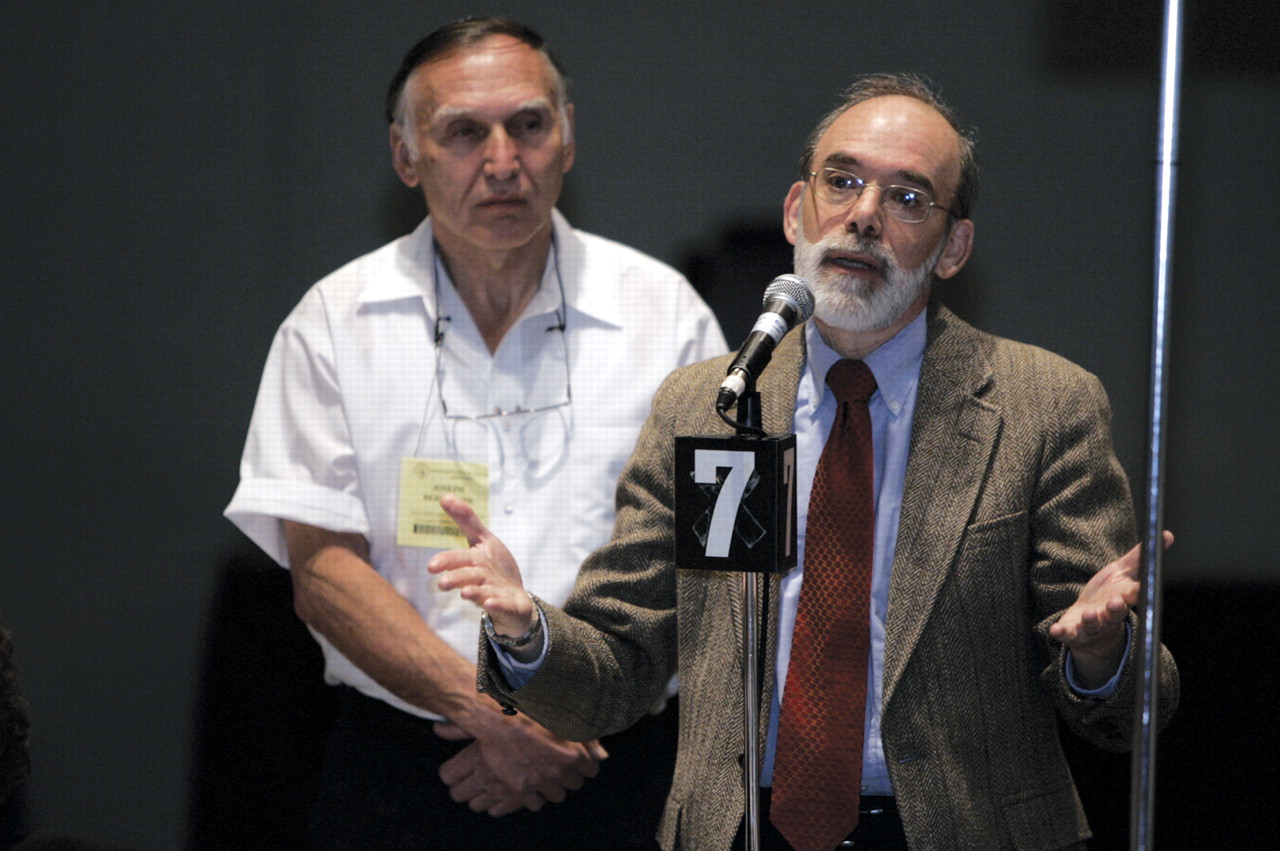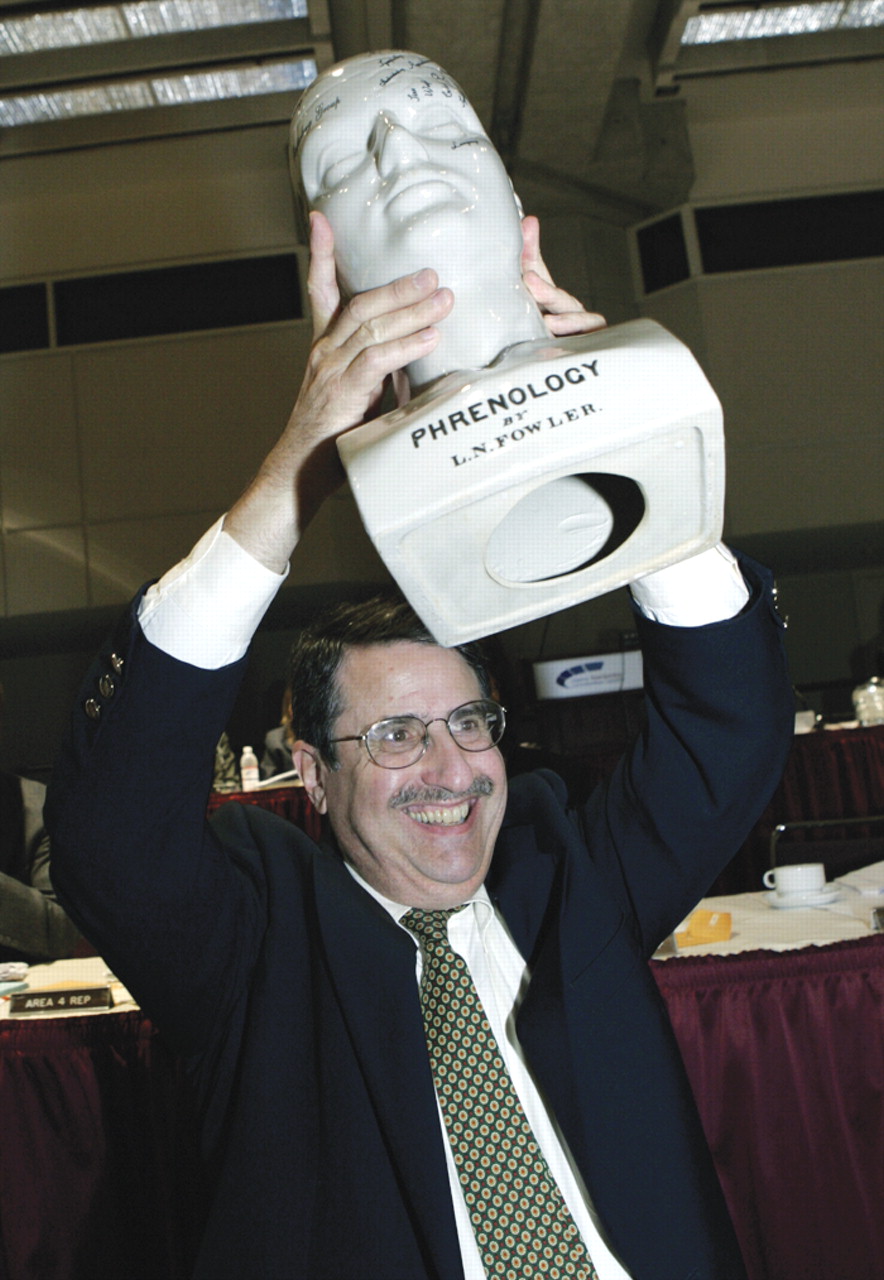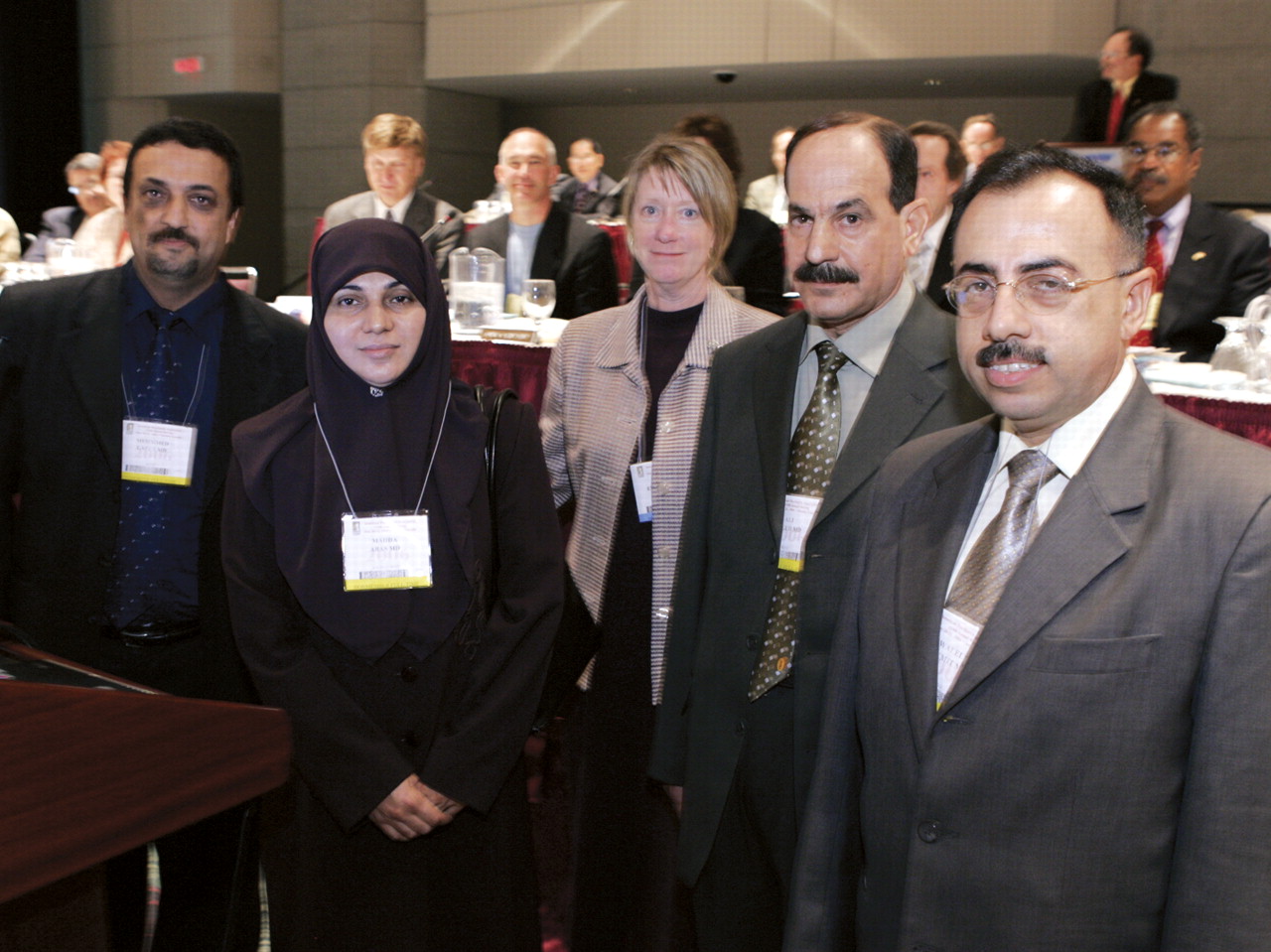After an extended and often impassioned debate at its May meeting in Toronto, the Assembly passed an APA position statement dealing with psychiatrists' participation in interrogation of detainees held in either military or civilian detention. The Board of Trustees endorsed the position statement at its meeting later that day, so it is now official APA policy.
The statement also reiterates APA's position that psychiatrists“ should not participate in, or otherwise assist or facilitate, the commission of torture of any person” and should report any instances of torture they learn have occurred or are being planned (see page 10). There was no disagreement among Board or Assembly members about this part of the position statement.
The Board had endorsed a statement addressing torture and interrogations at its October 2005 meeting, but in November 2005 Assembly members approved a statement whose wording differed on key points related to the interrogation limits, with a majority of the Assembly favoring less-restrictive limits on psychiatrists' involvement in interrogations. One major difference was that the while the Board's statement said that psychiatrists should not take part in “interrogation of persons held in custody by military or civilian investigative or law-enforcement authorities....,” the Assembly added wording to ban participation only in “coercive” interrogations.
The Board, however, reaffirmed its version in December 2005, prompting APA President Steven Sharfstein, M.D., to appoint a small work group to develop wording on which the two governing bodies were likely to agree.
The revised wording was presented to the Assembly in May. With 66.4 percent of votes in favor, 30.2 percent opposed, and 3.4 percent abstaining, the Assembly endorsed the statement with the following wording:
“No psychiatrist should participate directly in the interrogation of persons held in custody by military or civilian investigative or law enforcement authorities, whether in the United States or elsewhere. Direct participation includes being present in the interrogation room, asking or suggesting questions, or advising authorities on the use of specific techniques of interrogation with particular detainees. However, psychiatrists may provide training to military or civilian investigative or law enforcement personnel on recognizing and responding to persons with mental illnesses, on the possible medical and psychological effects of particular techniques and conditions of interrogation, and on other areas within their professional expertise.”
One noncontroversial part of the statement emphasized that psychiatrists should not disclose any part of a medical record “or any information derived from the treatment relationship” to people conducting detainee interrogations.
During the Assembly debate last month, several members, including Thomas Grieger, M.D., representative of the Society of Uniformed Services Psychiatrists (an APA district branch for members in the military), urged the Assembly to delete part of a sentence that described what “direct participation” in interrogations entails, including being present during the interview and “advising authorities on the use of specific techniques of interrogation.” Grieger, who was a member of the work group appointed by Sharfstein, was concerned that the wording provides unnecessary restrictions on psychiatrists' ability to advise officials on noncoercive interviewing techniques that could be effective in eliciting information from certain detainees. Greiger told Psychiatric News that he sees a legitimate role for psychiatrists in “suggesting approaches to conducting interviews.” Among the examples he cited were“ using a different interviewer, asking more open-ended questions, [and] opening sessions with periods of rapport building.” He likened such activities to what forensic psychiatrists do and noted that their goal is mainly to identify “other potentially dangerous individuals who are not in custody....”
Agreeing with Grieger was Joseph Berger, M.D., a representative of the Ontario District Branch, who indicated that he has two daughters and six grandchildren living in Israel, where the threat of terrorism in constant. He insisted that he would want psychiatrists to be able “to do anything if it prevents terrorists from killing innocent people.”
Former APA President Paul Appelbaum, M.D., chair of the joint Board-Assembly work group, pointed out that psychiatrists in forensic and other roles often perform nonclinical tasks, but the difference between those and interrogating detainees is that in the former instances the person being questioned understands the psychiatrist's role, and the interaction is neither coercive nor deceptive. The purpose of forensic evaluations is “to assess the person's mental state.”
“Interrogations, even when conducted legally, are inherently coercive and deceptive,” Appelbaum said in a memo to Assembly Speaker Joseph Rubin. They are “coercive because a detainee who wanted to talk would not have to be interrogated; deceptive because interrogators are trained to mislead suspects and are supported by the law in doing so. The purpose of the interrogation is to pressure or trick the detainee into revealing information the detainee does not want to disclose.”
Evan Eyler, M.D., the Area 1 ECP representative, urged her colleagues to support the revised wording, saying that while the wording may not seem ideal to some members of the Assembly, APA should not delay even further in adopting an official position on this critical topic. “I am most proud of APA when it tackles difficult issues,” Eyler stated.
In his address to the Assembly's opening session, Sharfstein stressed that“ our ethics as physicians require us to obtain consent” before meeting with someone in a professional capacity. He added that “policing functions belong to the state, not to physicians.”
In other actions the Assembly voted to
•
Urge the editors of the American Journal of Psychiatry and other APA journals and books “to publish full disclosure information re potential conflicts of interest of contributors of manuscripts” as is already done in such journals as JAMA and New England Journal of Medicine.
•
Support a proposal calling on psychiatrists and others to stop using an anti-social personality disorder diagnosis as grounds to recommend involuntary commitment of someone to a psychiatric hospital. This was a response to the growing trend in the United States to apply this diagnosis to violent sexual offenders as a way to keep them confined after they complete their prison sentence.
•
Ask APA councils that deal with education and child psychiatry issues to explore a model that would open a new route into child and adolescent psychiatry training. This proposal attempts to address the critical shortage in the number of child and adolescent psychiatrists by developing a training program that requires 18 months of general psychiatry training with an additional 18 months of training in child and adolescent psychiatry. The Assembly wanted the program to be open to board-eligible or board-certified pediatricians.
•
Have APA examine diagnostic and therapeutic factors that arise after large-scale disasters. The paper's intent was to “facilitate development and implementation of treatment interventions” targeted to the psychiatric sequelae of the trauma that can follow a major disaster.“ Therapeutic interventions need to be developed that are appropriate for use after large-scale [traumatic] events, in environments that cannot easily or rapidly return to normal,” the paper explains.
•
Urge APA to discuss with the Federal Emergency Management Agency and the Substance Abuse and Mental Health Services Administration a proposal to have the agencies “provide financial support for short-term/crisis-intervention and long-term psychiatric treatment” following natural and man-made disasters. While a federal law earmarks funds for short-term postdisaster psychiatric interventions, the paper's authors noted that disaster victims who develop PTSD, anxiety disorders, or major depression may require mental health care for months or years after the disaster.
•
Have APA compile and disseminate information “on the practices of nonlicensed personnel who administer medication” and on the standards each state requires for those who administer prescription drugs.
•
Develop a strategy to address Food and Drug Administration approval of psychiatric drugs according to DSM criteria only rather than also approving new drugs “for signs and symptoms of psychopathology” as direct indications for use of the particular drug. “In clinical practice,” the paper pointed out,“ prescribing often targets signs or symptoms, not a diagnostic entity per se.... Psychiatrists often prescribe `off-label' for a variety of signs and symptoms that are not necessarily associated with a specific diagnosis for which medications may be indicated.”
•
Approve an APA position statement on racism and racial discrimination and their impact on mental health. The statement, developed by Committee of Black Psychiatrists, says that “America's ever-increasing multiculturalism requires that traditional definitions of racism be expanded to include not only discriminatory attitudes and actions that take place between systemically advantaged groups against their targets, but also interactions between and among victimized groups that buttress the perpetuation of racist ideology.” The statement requires Board approval before it can become official APA policy.
•
Endorse less-frequent use of executive sessions by the Board of Trustees. The purpose of the proposal was to “affirm the principle that every meeting of every component of APA is open to any member of APA.” Among the suggestions in the paper were that the Board hold closed sessions only after a notice to do so is posted on the APA Web site, disclose the rationale for holding a closed session, ban closed sessions that discuss APA governance issues, and limit such sessions “to the minimum time necessary to discuss the specific confidential issues.”
The Assembly also heard a discussion by AMA Trustee Ronald Davis, M.D., of issues on that organization's health care advocacy agenda, most of which parallel those of APA. The AMA's top legislative priority, he said, is medical liability reform. Also high on the agenda are reforming the Medicare physician payment system so it reflects practice costs and inflation, expanding health care coverage for the uninsured and increasing access to care, and improvements in patient safety and quality of care. Davis is a candidate for president-elect of the AMA.
A summary of actions from the May Assembly meeting is posted in the Members Corner section of APA's Web site at<www.psych.org/members.index.cfm> under “Assembly.” ▪



